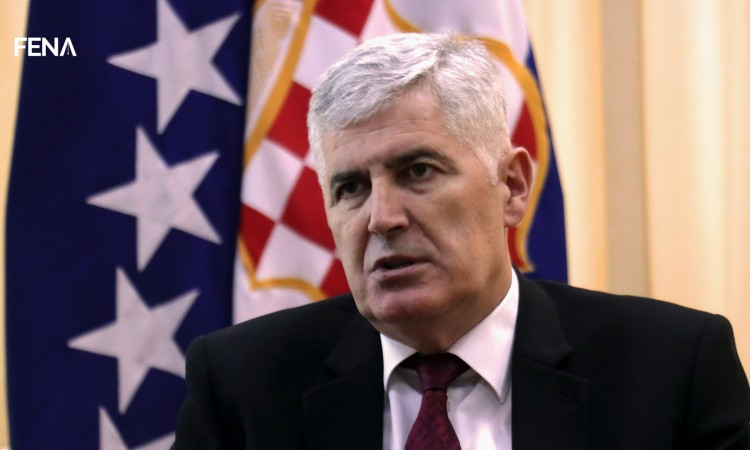
The main Bosnian Croat party supports the initiative to remove foreign judges from the Constitutional Court, party leader Dragan Covic said on Tuesday, arguing that this would be beneficial for Bosnia’s integration into the EU.
The demand for removing the judges came from Covic’s political ally, Bosnian Serb leader and member of the tripartite Presidency, Milorad Dodik.
The parliament of the Serb-majority semi-autonomous part of Bosnia, Republika Srpska (RS), on Monday instructed its representatives in state institutions to stop participating in any decision-making processes until a law removing the foreign judges from the Constitutional Court is adopted.
State institutions will effectively be blocked, leading Bosnia into another political crisis.
The move came after the Constitutional Court declared that public agricultural property in Republika Srpska should be owned by the state and not by the RS.
According to the Constitution, which is part of the 1995 Dayton Peace Agreement, the Constitutional Court is composed of nine judges - two Bosniaks, two Croats, two Serbs and three foreigners.
Dodik has been accusing the institution of working against Republika Srpska, arguing that the three foreign judges frequently side with the Bosniaks and outvote the Croats and the Serbs.
Covic, the leader of the main Croat party in the country, the Croat Democratic Union (HDZ BiH), said that there are many things that need to be reformed in Bosnia and that the Constitutional Court is one of them.
“The fact is that there are three representatives of international institutions in the Constitutional Court for more than 20 years already and the time has come for Bosnia and Herzegovina to have nine representatives of the three constituent peoples. In order for that to happen, we need to adopt adequate laws through the parliamentary procedure and we need a consensus for that,” Covic told TV Herceg-Bosna.
Bosnia can not be considered a ‘protectorate’ if it wants to integrate into the EU, Covic argued.
“The Croat National Council and the HDZ BiH will support the approach that nationals of Bosnia and Herzegovina must be in all institutions of the executive, legislative and judicial branches of government, including Bosnia’s Constitutional Court,” Covic said.
Since the 2018 election, Dodik and Covic have been in a ‘programme alliance’.
Dodik has been openly pushing for Republika Srpska to secede from Bosnia and possibly join neighbouring Serbia for years.
Meanwhile, Covic and his party have been pushing for reforms of the election law that would effectively divide FBiH into ethnic Bosniak and Croat electoral units.
The HDZ argued that such reforms must be implemented in order to implement a ruling by the Constitutional Court which declared parts of the election law unconstitutional.
The HDZ has also been celebrating ‘Herzeg-Bosnia’, a self-declared Bosnian Croat political structure established by Croat nationalists during the war in the south of the country. According to the International Criminal Tribunal for the Former Yugoslavia (ICTY), the parastate had the ambition to become one of three ethnic republics in Bosnia and possibly to secede and join neighbouring Croatia.
Bosniak representatives, those from left-leaning parties and even some of the former international administrators of the country have been accusing Dodik and Covic of trying to carve up Bosnia based on wartime goals.
Covic rejected the criticism of his political opponents.
“Their patriotism and pro-Bosnian stances are nothing other than a brutal division of relations meant to disintegrate Bosnia so that it stays under the control of some international institutions and so it is easier for them to reach what they call a ‘civic state’,” Covic said.
Bosnia can only survive as a union of three constituent peoples represented by their legitimate representatives, he said.
Kakvo je tvoje mišljenje o ovome?
Učestvuj u diskusiji ili pročitaj komentare





 Srbija
Srbija
 Hrvatska
Hrvatska
 Slovenija
Slovenija







